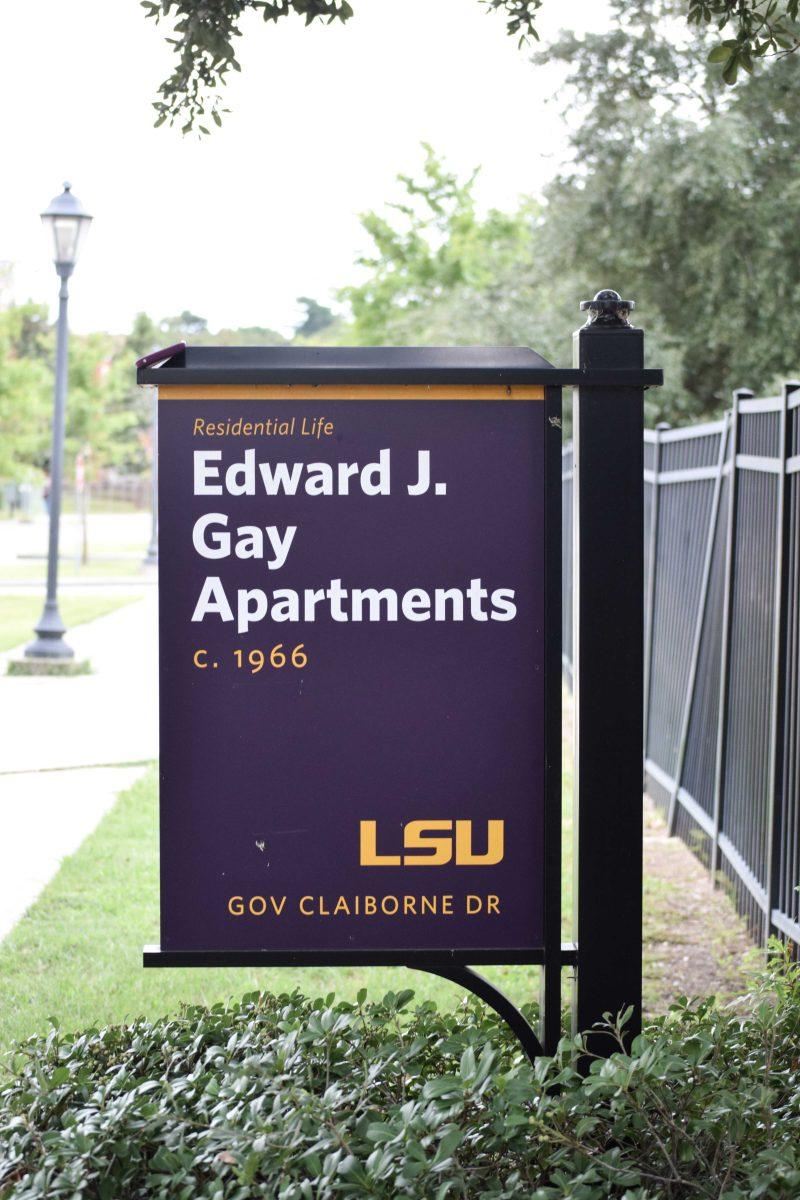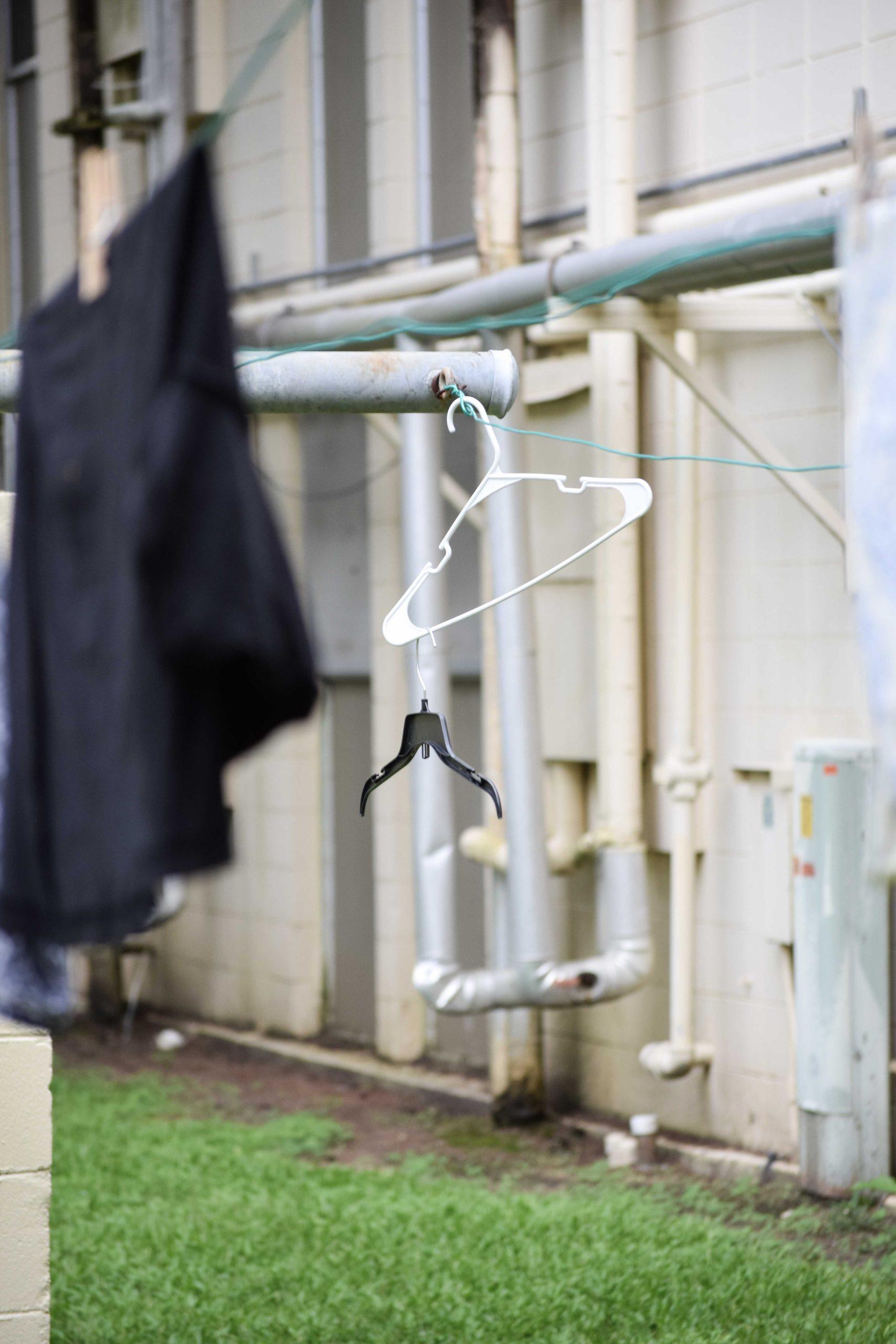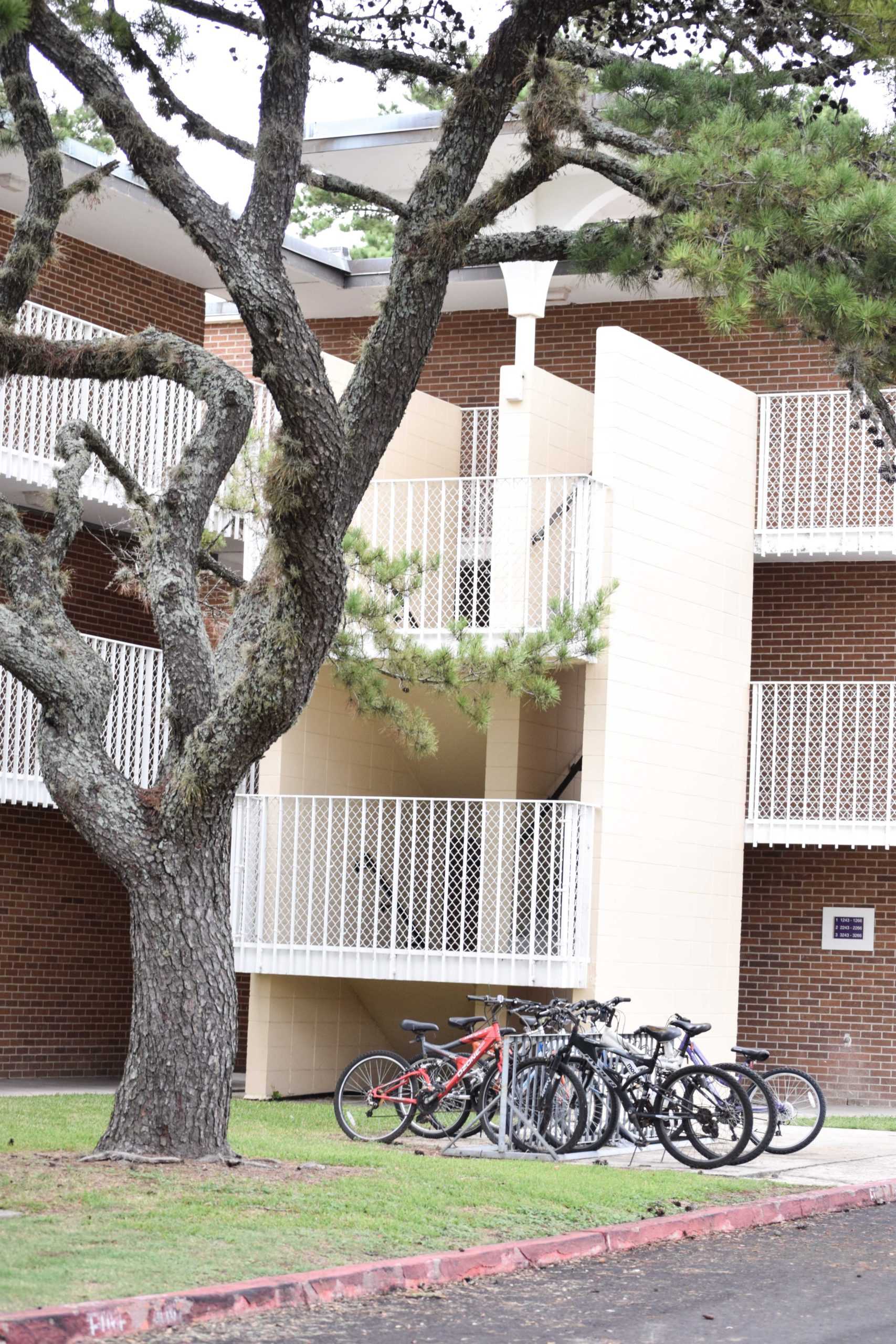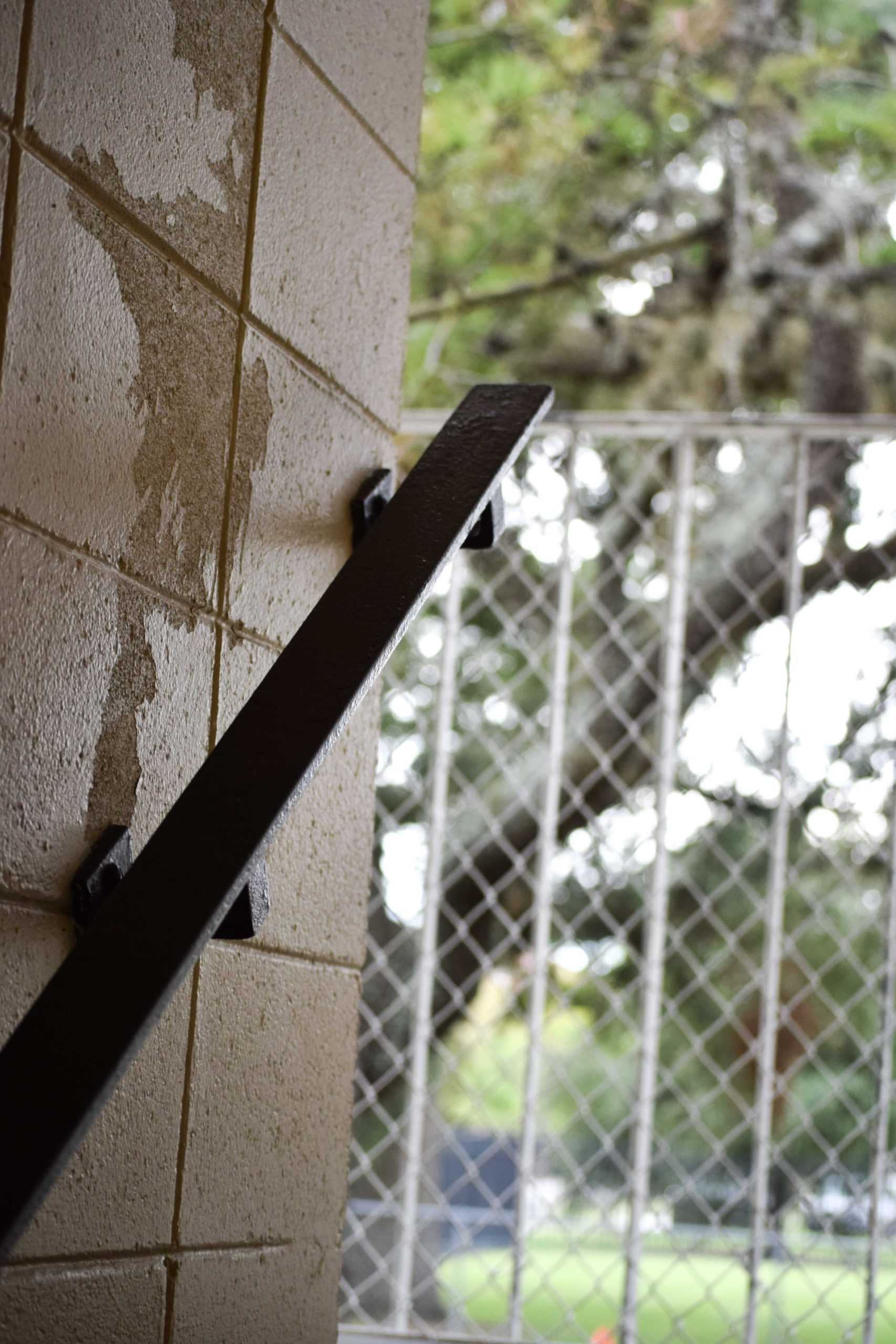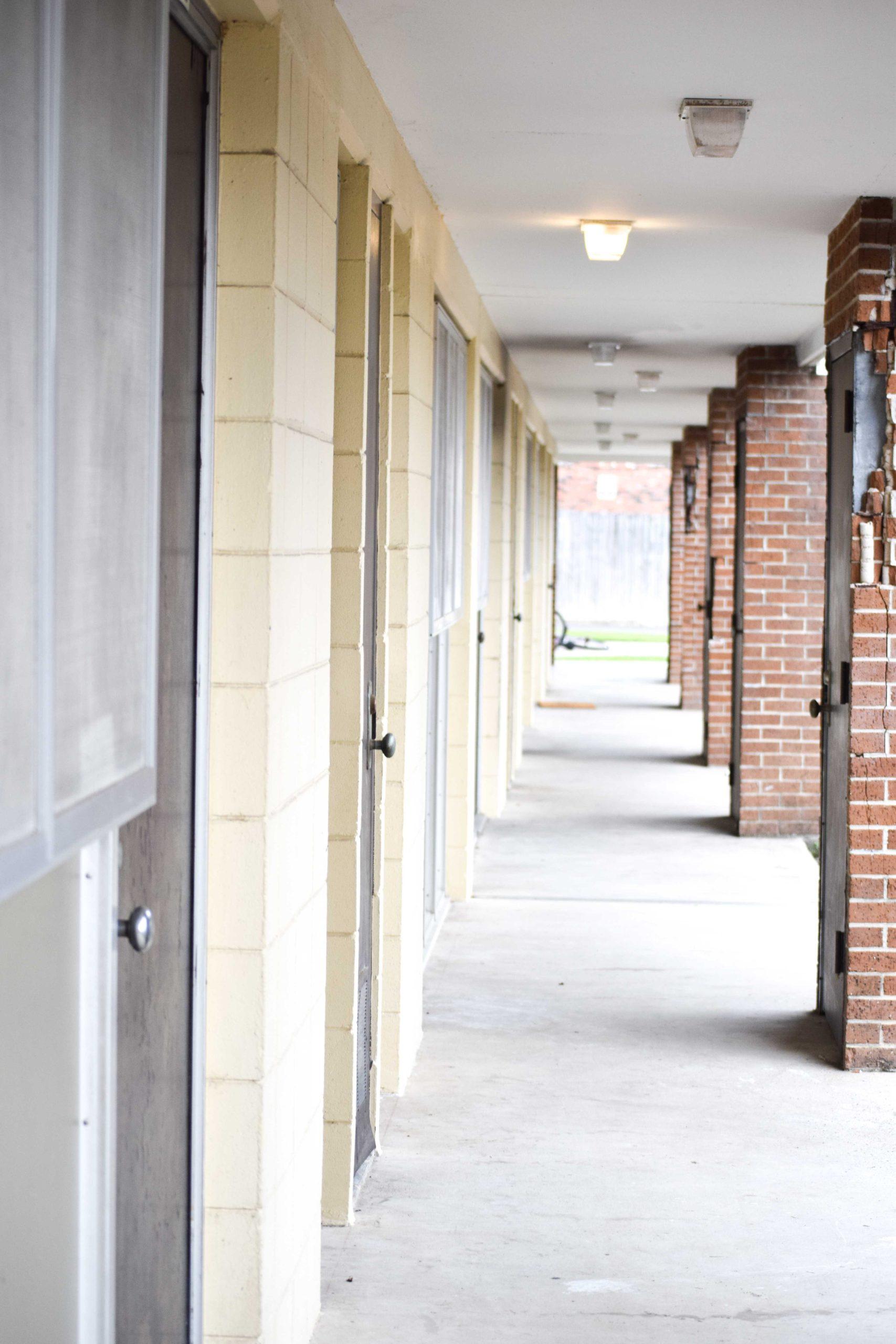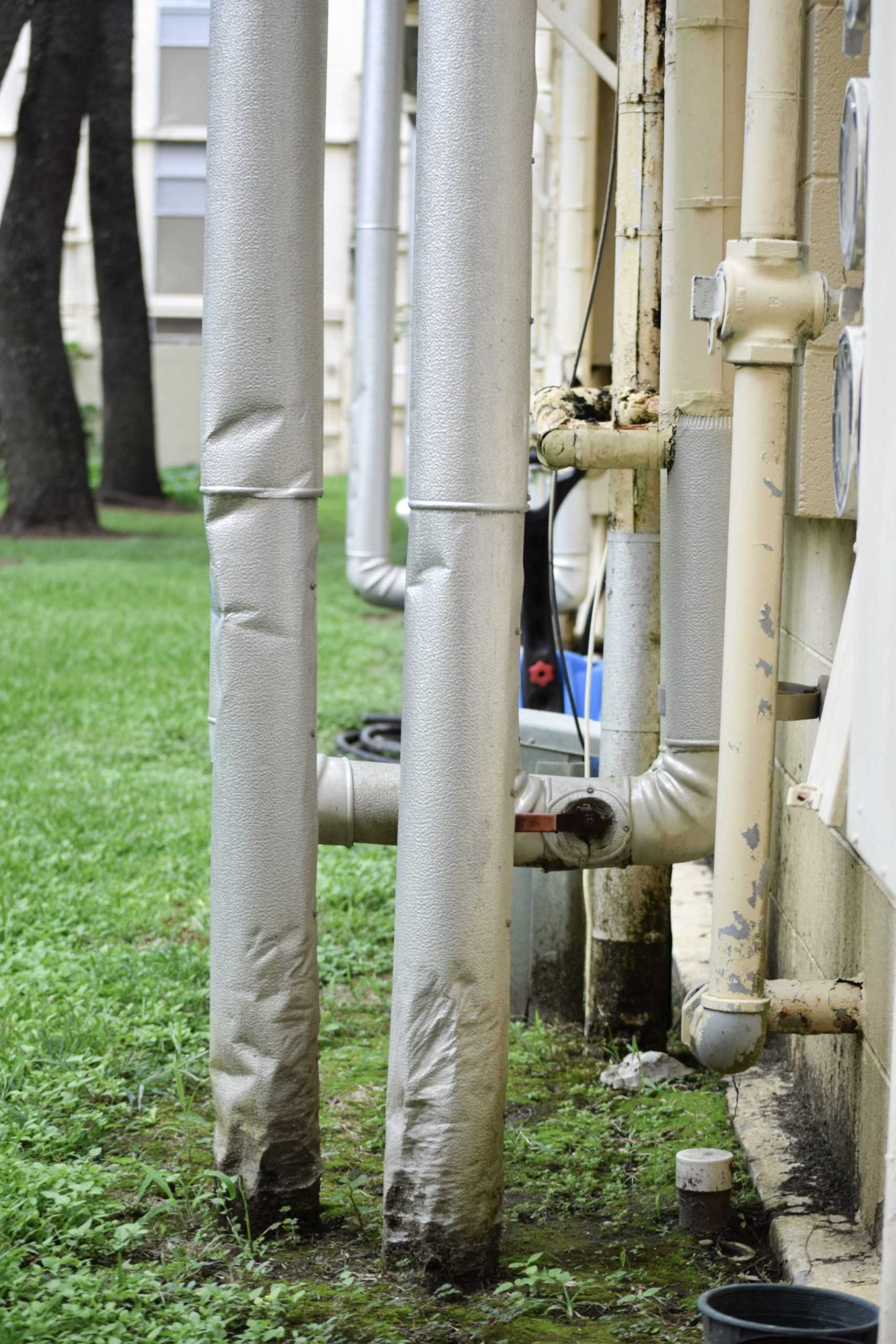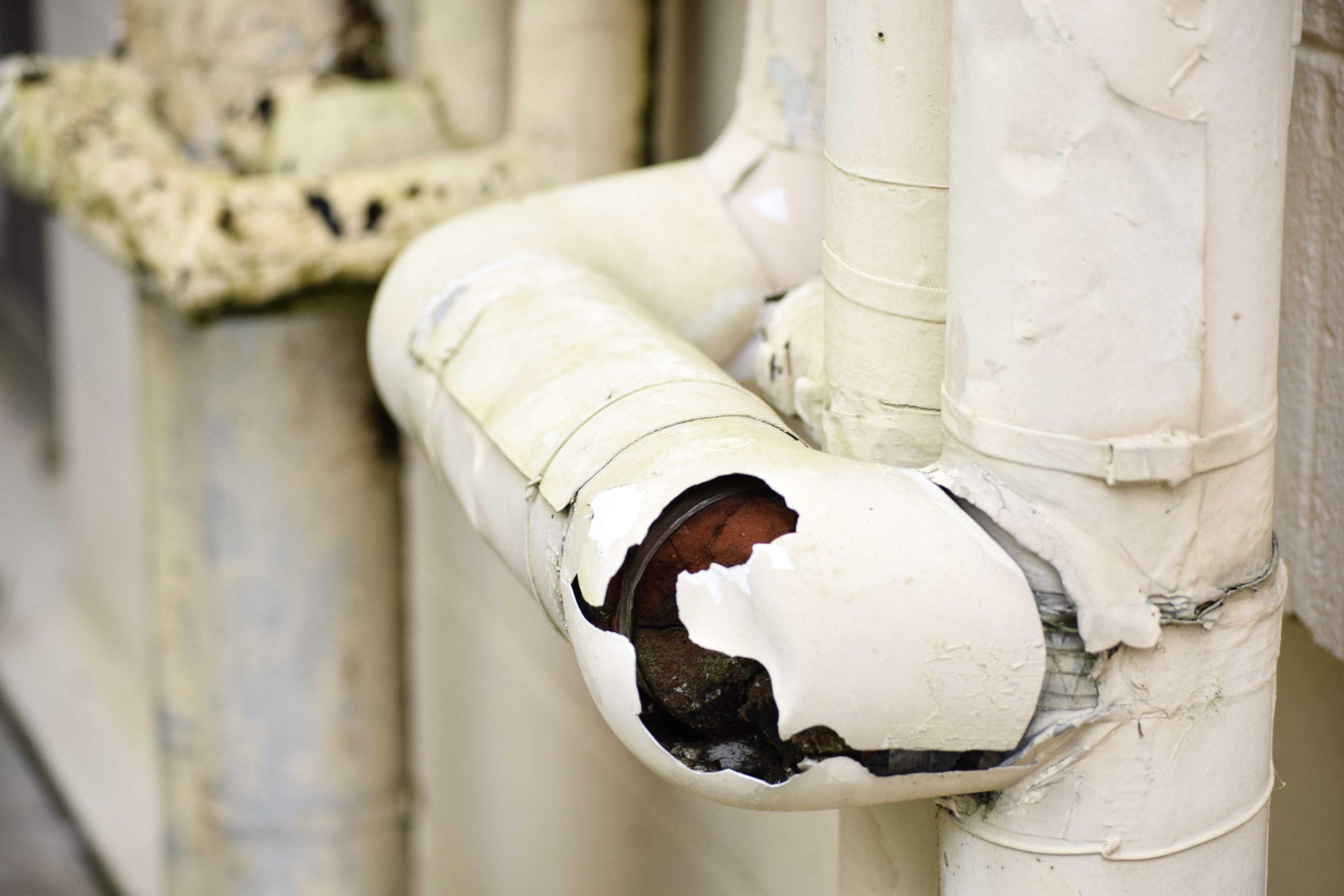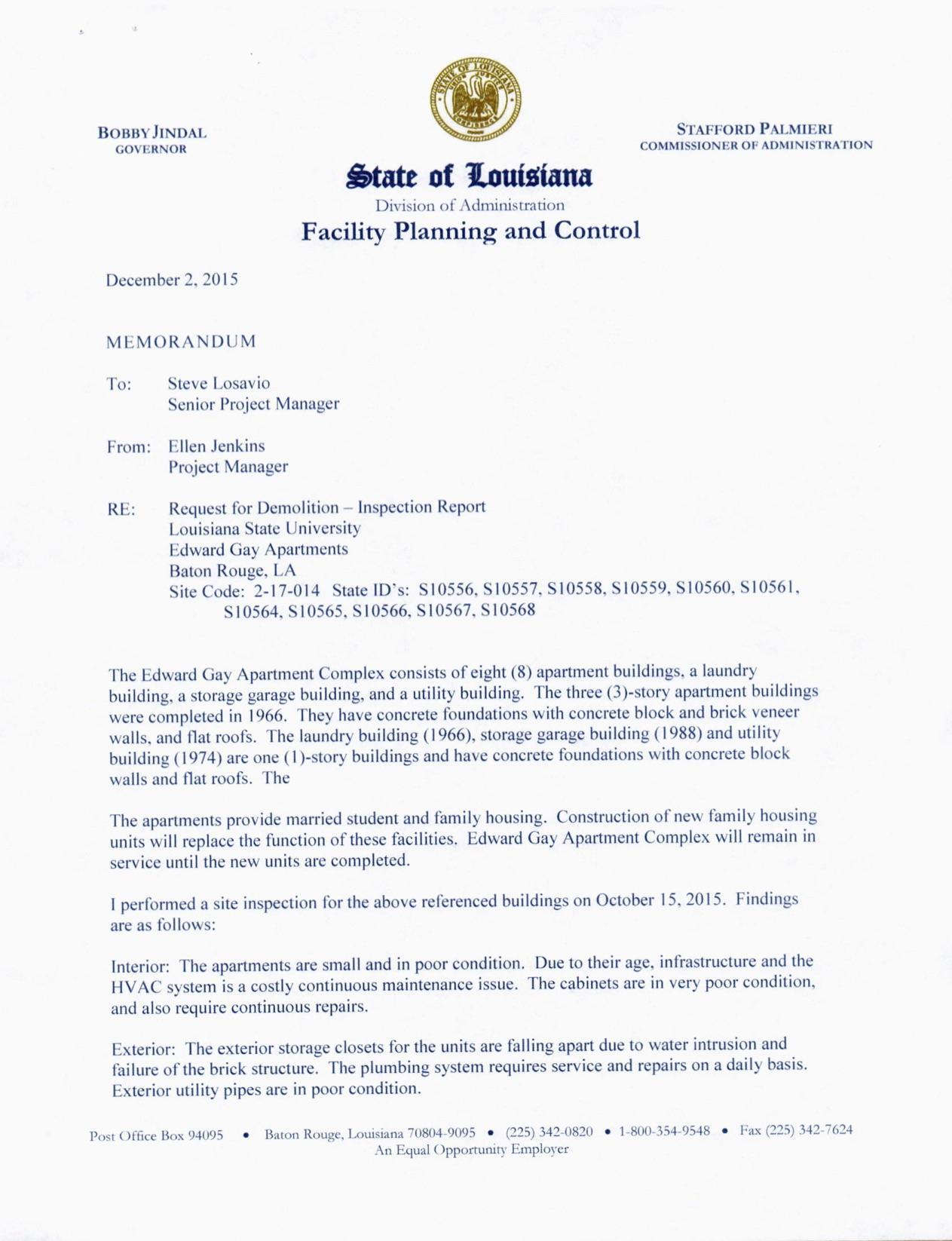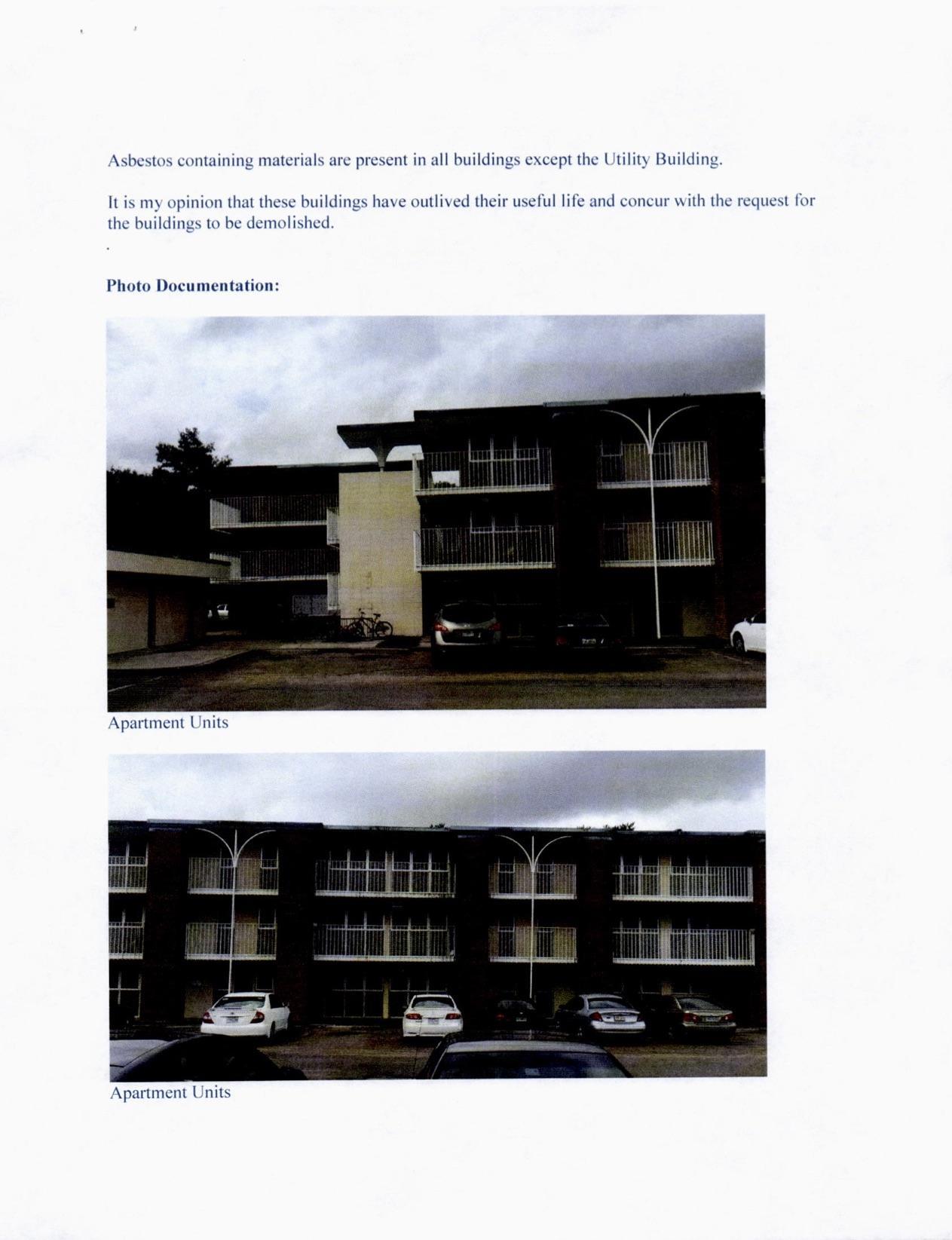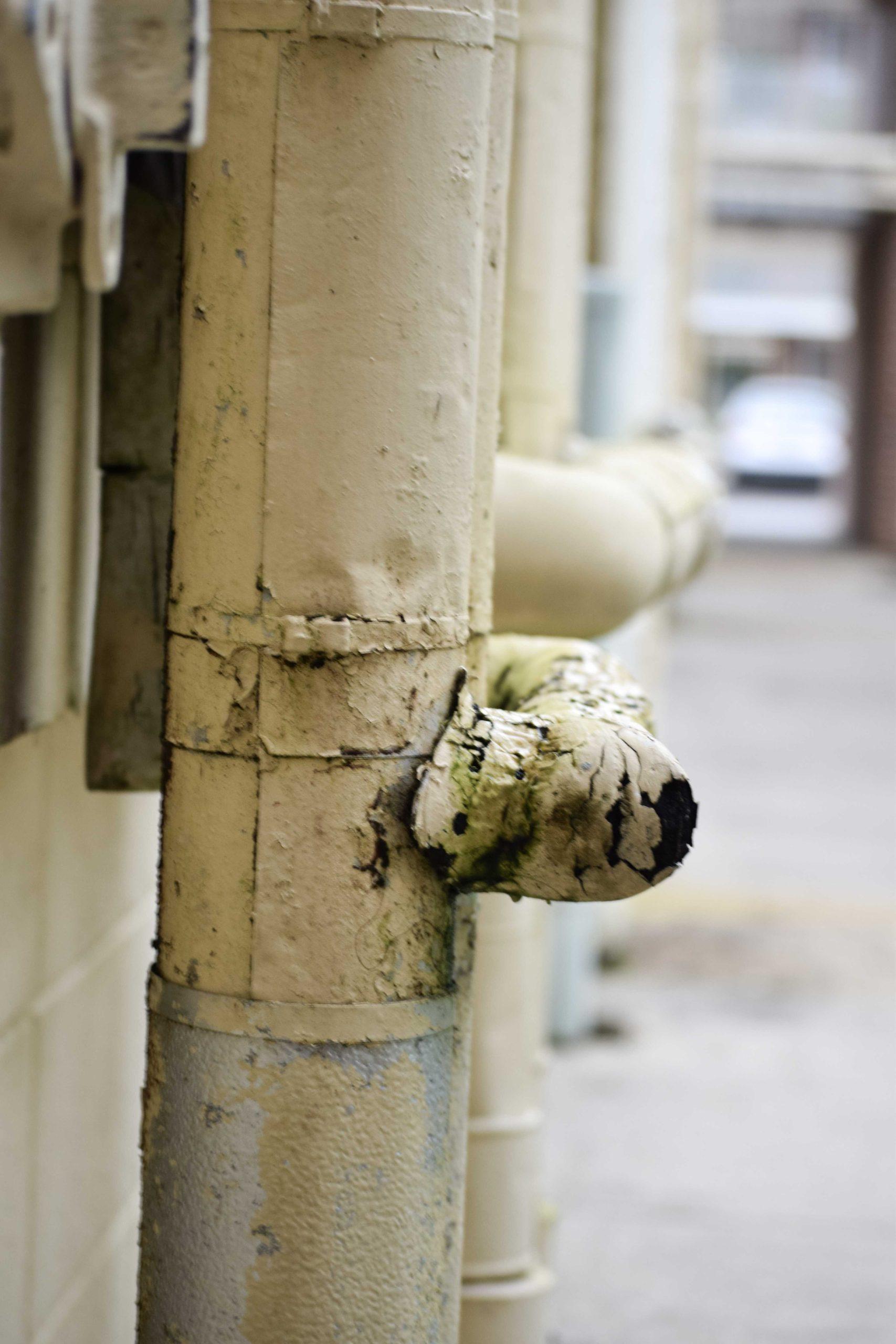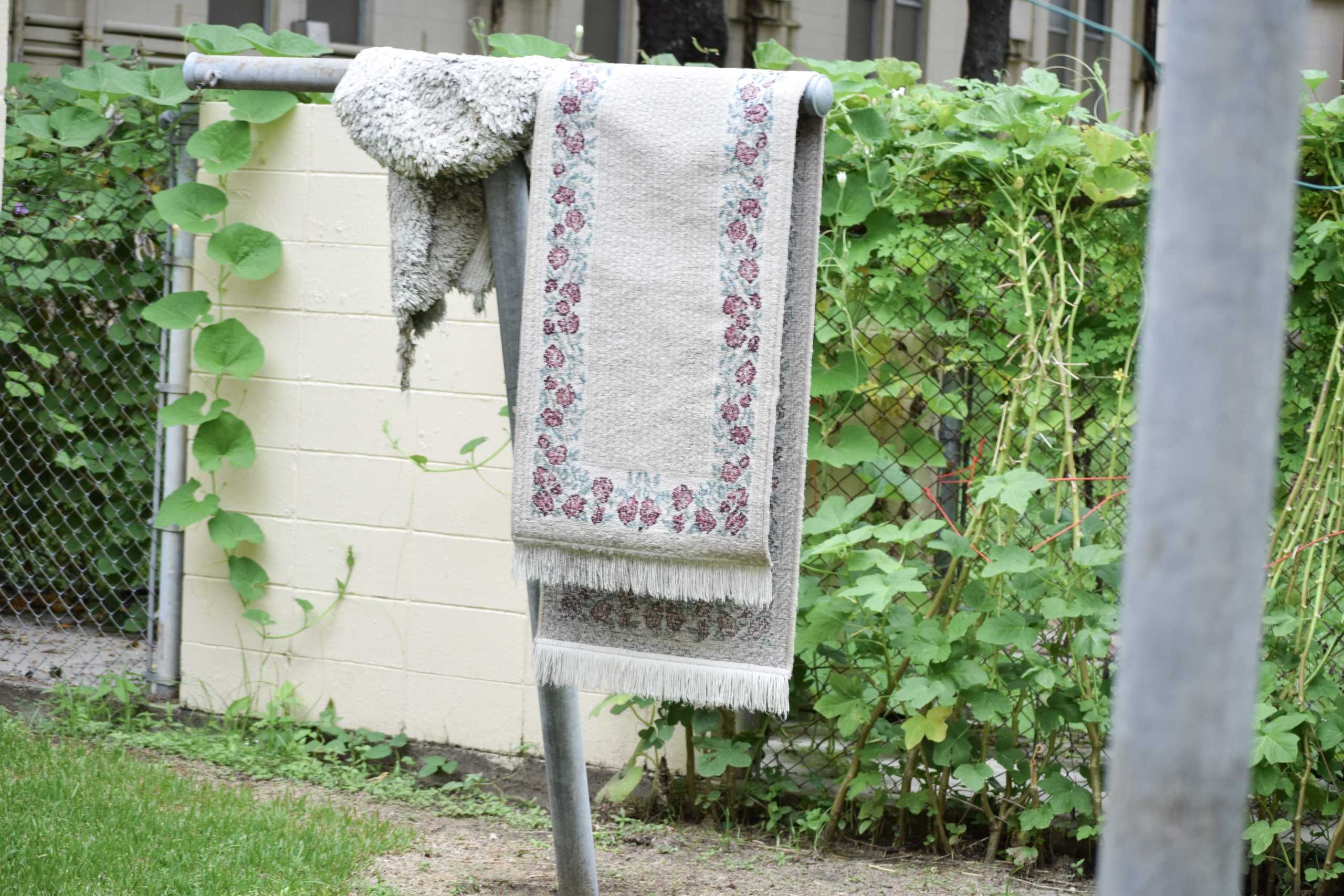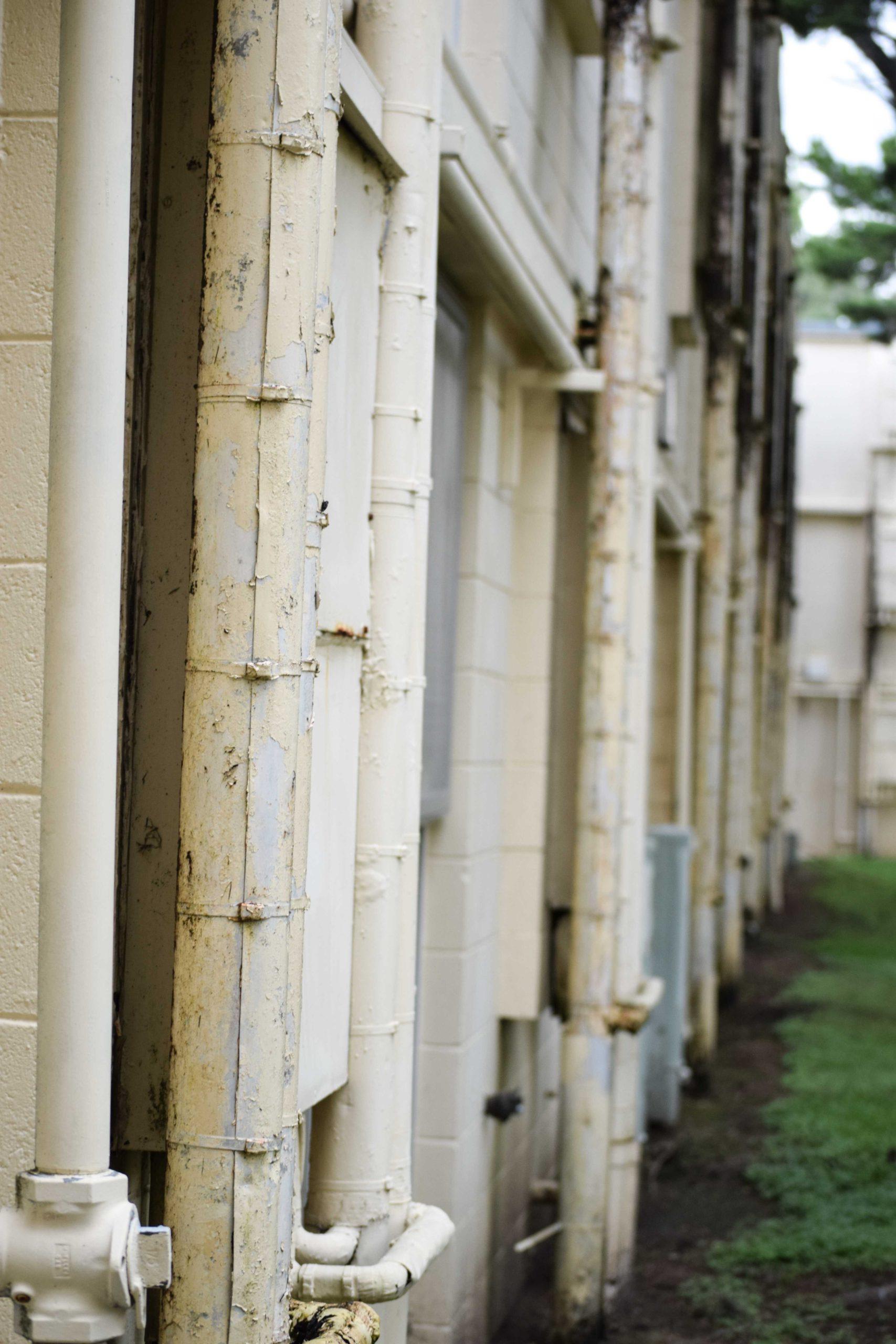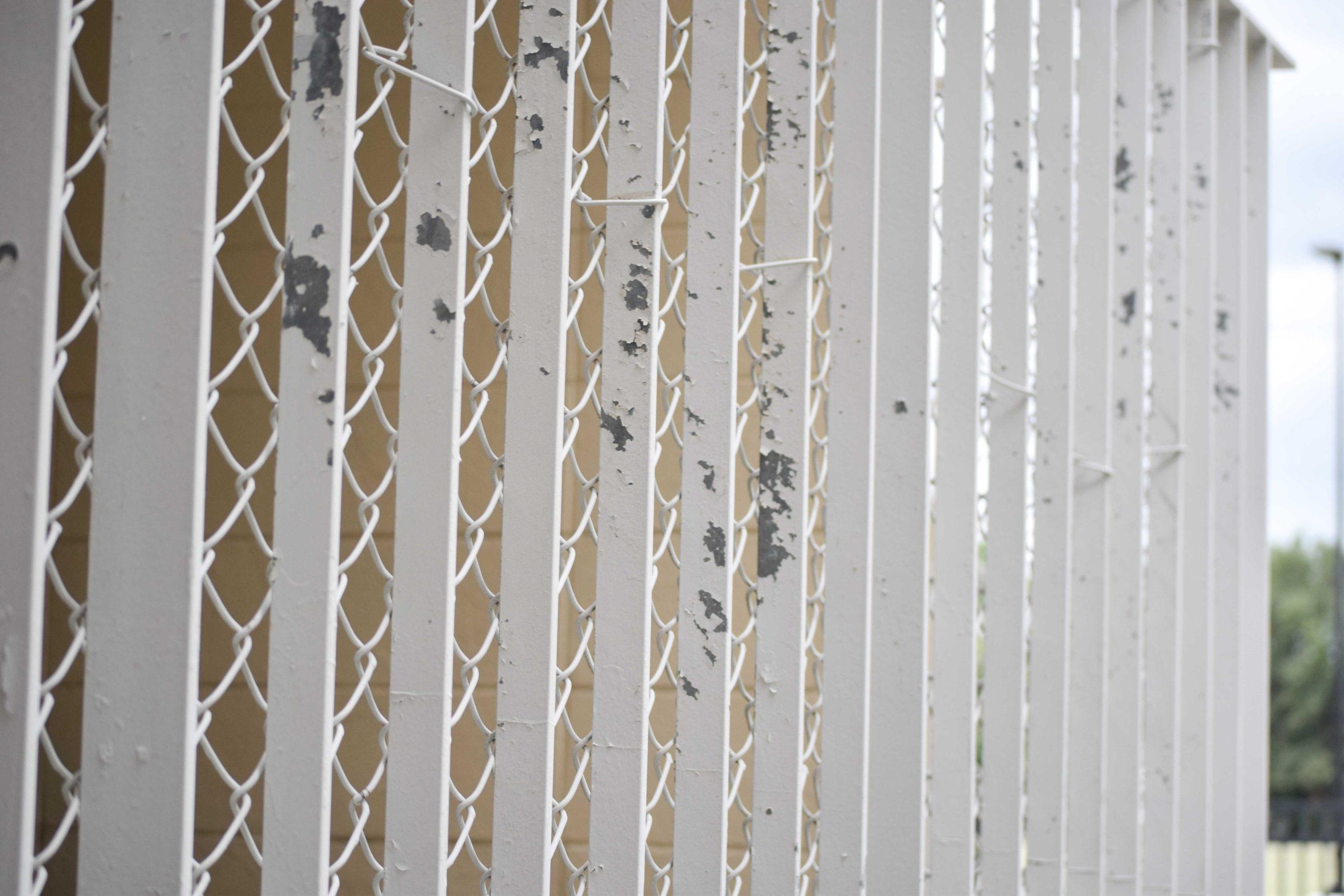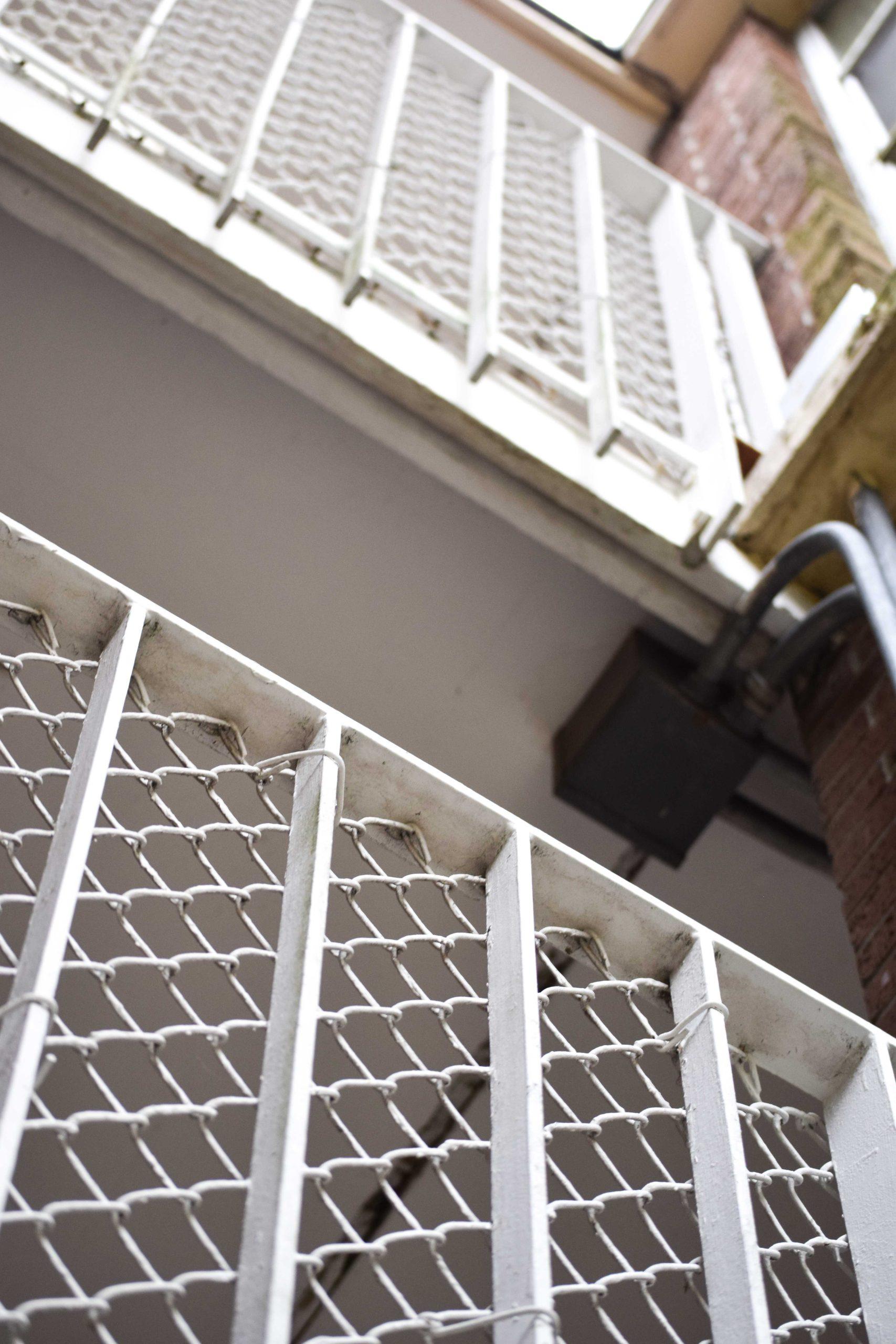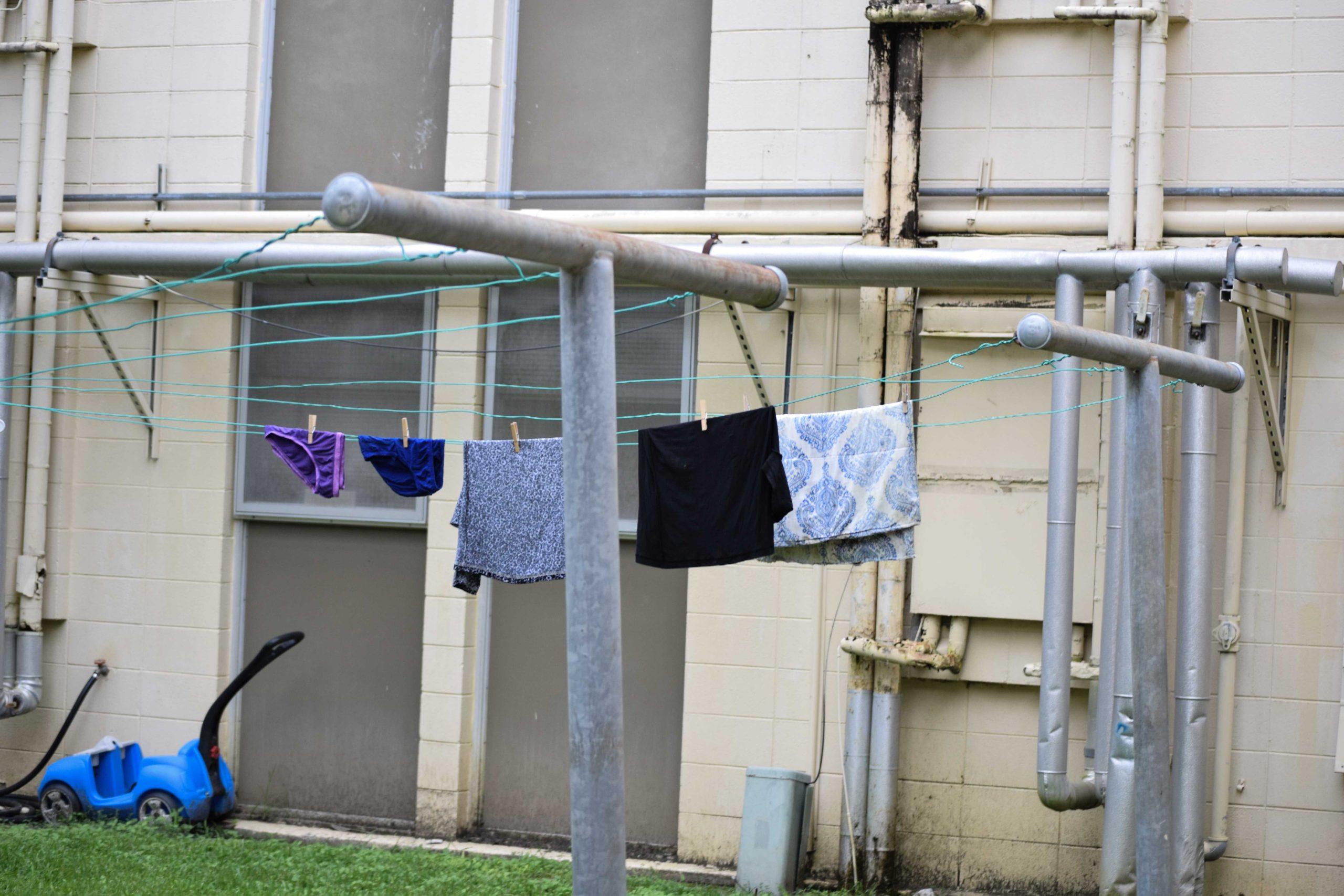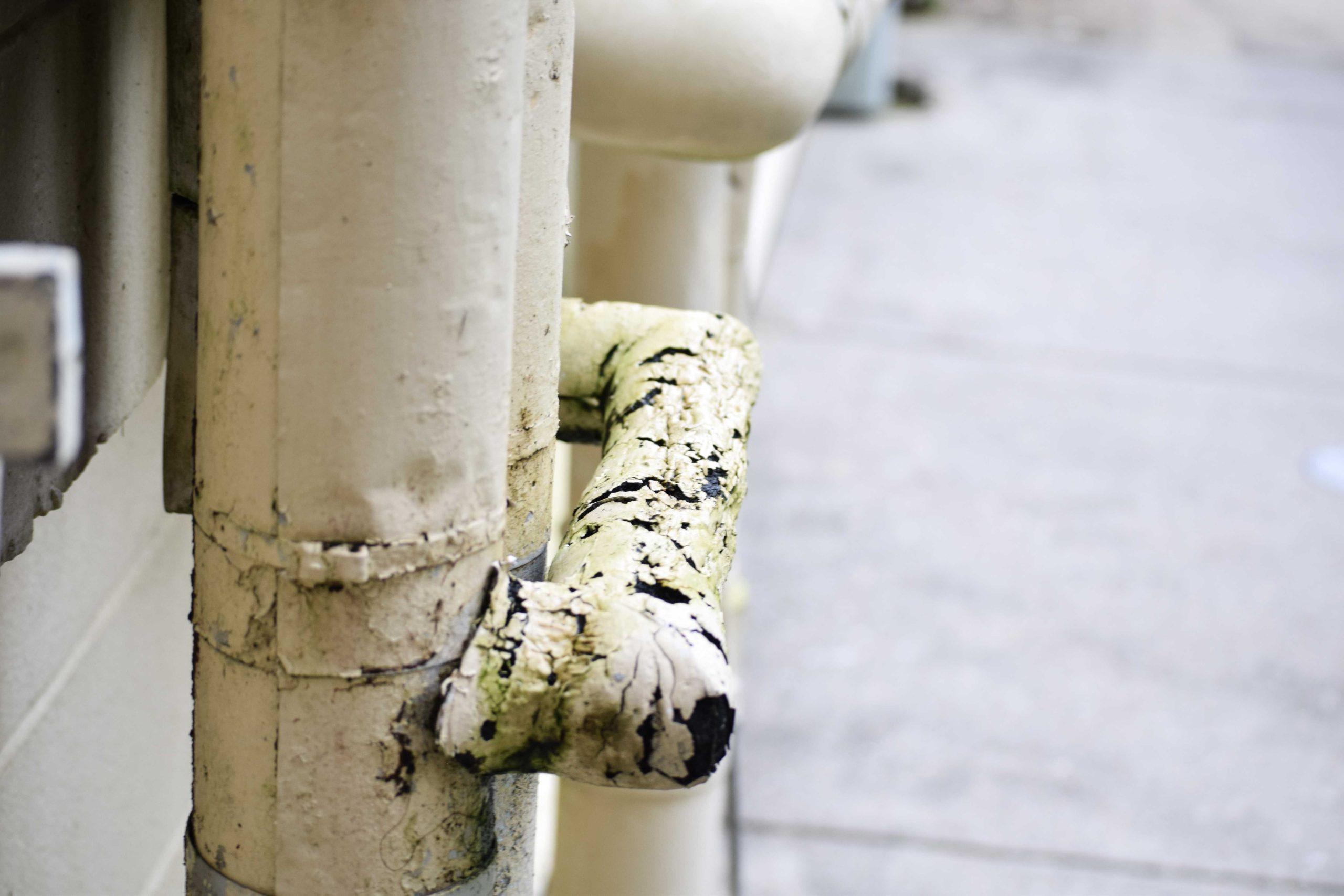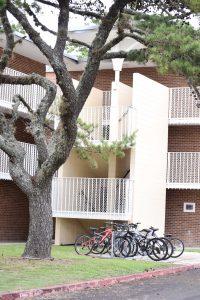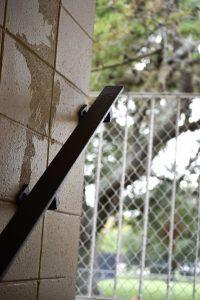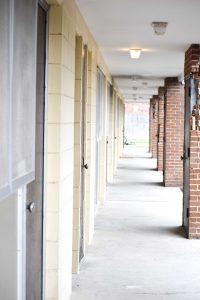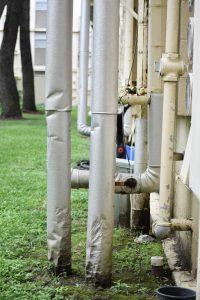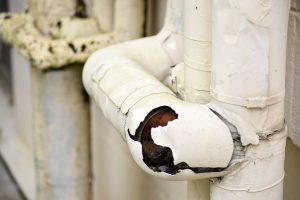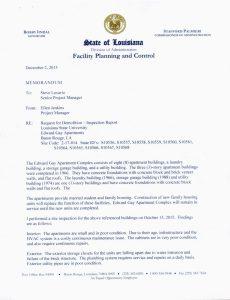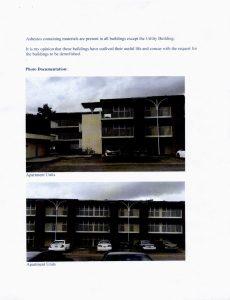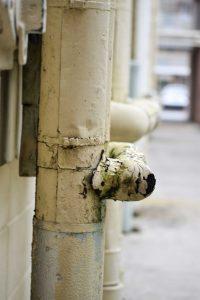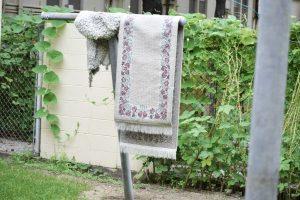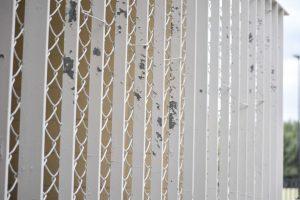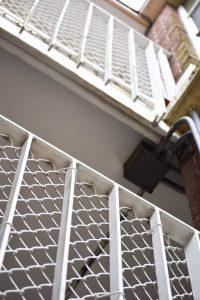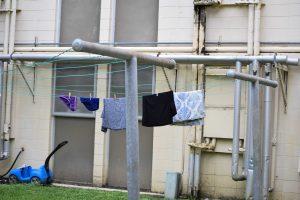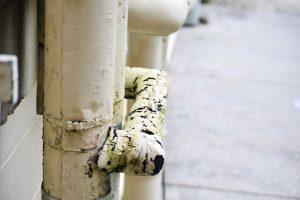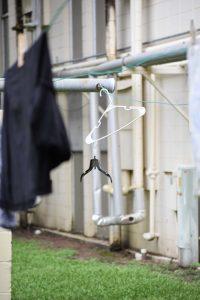They predate Lockett Hall and were built just seven years after Middleton Library, yet there is no date set to replace the only on-campus housing for the University’s married students and students with families.
Originally built in 1966, the Edward Gay Apartments have not been majorly renovated since its construction. They still house 183 residents — graduate students, married students and students with families — with a large population of international students.
Despite decades of wear and tear that have left the apartments in a lackluster state compared to its newer counterparts across Aster Street, the University announced on Oct. 3 its plans to demolish Herget, Kirby-Smith, McVoy, Miller, Acadian and Broussard residence halls by 2023, neglecting to include Edward Gay.
A new resident or passerby will find exposed or even cracking pipes at Edward Gay. Several of the brick beams on the exterior are also fracturing while grime coats the cinder block walls of the building. Residents complain of mold and roaches.
Anthony Hewitt, who worked as a desk assistant for Edward Gay in the summer of 2016, says the residents of the complex, located on the outskirts of campus, seem to live independently. “They pretty much handled everything on their own, like the Wild West,” Hewitt says. “They did what they needed.”
The 138 units in the complex — all unfurnished — are comparably smaller than off-campus housing in the area with 540 square feet for a two bedroom apartment and 645 square feet for a three bedroom. For comparison, a neighboring complex, The Venue at Northgate, has two bedrooms ranging from 788 to 935 square feet and 1058 square-foot three bedrooms.
However, the apartments are also far less expensive than surrounding complexes with monthly rates of $710 and $765, respectively. Split between two or three residents, that comes to about $255 to $355 a month—utilities, Wi-Fi and basic cable included.
The comparatively low rate and its easy accessibility to campus makes Edward Gay an affordable option for the University’s international students, many of which are attending the University seeking an advanced degree.
Assistant Vice President for Residential Life Steve Waller says Residential Life is considering the price point as they plan how to approach replacing the complex.
Food sciences graduate student Kriza Calumba, an international student who lives in the apartments, says she uses the money she saves on rent to travel the country. While she’s only been in the United States a little over a year, Calumba has already dipped her toes in the sand of Florida beaches, posed in front of The Bean in Chicago, spent Christmas in Las Vegas and seen Antelope Canyon in Arizona.
Between her food sciences courses, lab work, involvement with the International Cultural Center and position as a hip-hop dance instructor, she’s not home much anyway. “It’s just appropriate for my normal, day-to-day life,” she says.
However, the aging of the building has lead to concerns from residents about the quality of life at the apartments. Hewitt says the problems residents at Edward Gay reported to him were more serious than when he worked the desk at other on-campus complexes.
“If they were coming, it was for a bigger deal than anywhere else,” Hewitt says. “Usually, when I was in Herget, it was a key or a light bulb or something. Over there, it was like something flooded.”
For instance, keeping the temperature too cold in the apartment lead to moisture forming on the cinder block walls that would sometimes result in mold growing along them, Hewitt says. Maintaining the air in the apartment above the recommended temperature proved an issue for residents, especially in the scalding hot Louisiana summers.
Waller recommends residents keep their thermostats set to 70 degrees year round. He says problems also arise when residents leave their door open or engage in other activities that let humidity into the apartments.
“It’s like anywhere in Louisiana,” Waller says. “It’s no different than anywhere else. If you don’t manage your environment—if you go home and you open your windows and you turn your air conditioning on, you’re going to have a moisture issue.”
Chang Liu, who lived at Edward Gay from August 2016 until April 2017 working as a Graduate Resident Assistant, says he and the three other GRAs who worked there would conduct monthly inspections to make sure the apartment was clean and void of any prohibited items. They would follow a specific protocol should they find mold, he says.
“If you see black mold growing in their bedroom, that’s going to be a problem for their health,” Liu says. “We’d have to put a note on their door and say, ‘We’ll send a team out to clean it for you. Just make sure you cover your stuff.’ If it was black mold, it should be taken care of the next working day.”
Liu says he would field mold complaints approximately once a month or less during his duration as a GRA.
Edward Gay residents also report small roach infestations.
“That’s the main problem Edward Gay has,” Calumba says. “No matter how much I clean it, I still see those baby roaches.”
Liu says lots of residents would complain about the roaches, a problem he believes is not an easy fix. “They can’t really clear them out,” Liu says. “I’m not in engineering, but I heard it was because the building was too old. So I heard those things were living between the walls.”
Waller says Residential Life sprays the cracks and crevices inside the apartments quarterly and sprays the outside semi-annually. Then, the department follows up with spot treatment if students report roaches.
“We have been fairly aggressive, not only at Ed Gay, but at all of our apartments,” Waller says.
In public records obtained by Legacy Magazine, a letter sent by Project Manager Ellen Jenkins to Senior Project Manager Steve Losavio on Dec. 2, 2015, contained the results of an October 2015 inspection, in which she found the “buildings have outlived their useful life” and recommended their demolition.
“Due to their age, infrastructure and the HVAC system is a costly continuous maintenance issue,” the memo reads, referring to the heating, ventilation and air conditioning system in Edward Gay. “The cabinets are in very poor condition and also require continuous repairs.”
“The exterior storage closets for the units are falling apart due to water intrusion and failure of the brick structure,” the memo continues. “The plumbing system requires service and repairs on a daily basis. Exterior utility pipes are in poor condition.”
Many basic amenities in the apartments are either non-existent or unreliable. The small kitchen nook contains just enough counter space for a sink and a stove, but not a dishwasher. The only bathroom in each apartment does not have a cabinet underneath it, leaving piping exposed.
The apartments do not contain a washer or dryer in the unit. Instead, residents have to go to the laundry room in a separate building and pay per load. Several residents hang their clothes to dry outside rather than pay the $1.25 per load fee to dry on top of the $1.25 spent to wash.
Additionally, residents would often come to the desk for assistance with internet problems, Hewitt says. “They could never get the internet to work over there because it was so far away,” he says.
The 2001 Campus Master Plan suggested the apartments be privatized, but Residential Life decided against it in 2005 after talking with residents, Waller says.
“We surveyed the students,” he says. “We serve a niche on campus, so we decided not to do that.”
In the years since, Residential Life has been looking into ways to continue to offer affordable graduate and family housing at a new facility.
Residential Life is an auxiliary service whose funding comes from the rent of its complexes rather than the University. Waller says Residential Life hopes to raise money through fundraising to help finance building new family housing complex and then help residents pay a portion of the higher rent of the new apartments.
“We were number three on the Student Affairs Priority List as far as trying to do fundraising,” Waller says. “Our goal is to do something like they did for the business college or the engineering college. If we could get donations to cover half of the construction cost, then we would do a 50-50 match.”
“That would allow us to build new apartments on campus…with rates that would be comparable with what the existing population has the ability to pay,” he adds.
Since the new complex would be built in a different location on campus, residents would continue to live in Edward Gay until its construction is complete.
A previous plan to build a new family housing complex spurred a request to demolish Edward Gay, approved in 2016 in conjunction with the new project. However, the project was put on hold because “the cost of construction necessitated the projected rent rates soar beyond what students with families could afford,” Associate Director of Communications for Residential Life Catherine David says.
“The postponement of the project forced the return to an interim solution until alternate sources of funding can be secured,” David says. “The existing apartments provide that interim solution — a reasonable, affordable campus housing options for students with families — that we maintain with short-term investments, constant facility work and resident education.”
There are no current plans to demolish the apartments, according to the University’s Assistant General Counsel Johanna Posada.
“We serve all students, so it’s important to us that students with families have an affordable campus housing option,” David says. “Right now that option is Edward Gay Apartments, but it is not a viable long-term solution.”
In the meantime, some residents like Calumba have made themselves at home at Edward Gay, finding a sense of community amongst its cinder block corridors. When Calumba moved into Edward Gay from the Philippines, she noticed there was a significant Filipino population in the complex.
“I came here alone, but I realized there are a lot of Filipinos here at LSU and in Baton Rouge,” Calumba says.
Now, Calumba and her friends have frequent get-togethers, whether it’s going on weekend beach trips, having surprise birthday parties or orchestrating crawfish boils on the playground.
“The best part is having most of the Filipinos here in Edward Gay because it’s very easy to go to somebody if you need somebody to talk to, or if you don’t have food, you can just knock on their door and ask for food,” Calumba says with a laugh. “Filipinos love singing so we’ll have karaoke. Here it’s like everyday karaoke.”
Since plane rides back home aren’t included in Calumba’s Fulbright scholarship, the tile-floored apartment is her home until she graduates in May. Connecting with other Filipinos helps bring her a little closer to her home on the other side of the world — a 29-hour flight away.
“I’m not choosy when it comes to a place to live,” Calumba says. “As long as I sleep comfortably in my bed, I’m good.”
Calumba has visited friends in more expensive off-campus student living complexes, complete with pools and exercise equipment and found a lot the amenities excessive, she says.
“I think that there’s a lot of unnecessary leisure,” Calumba says. “There’s just all this stuff, each room has a TV — what are you going to do with those? You pay a lot for that, but you’re not going to use everything. It’s just too nice, too beautiful.”
While LSU Res Life prepares to tear down dorms across campus, there are no plans to replace 52-year-old Edward Gay Apartments, despite recommendations to demolish
By Kaylee Poche
October 28, 2018
Edward Gay



